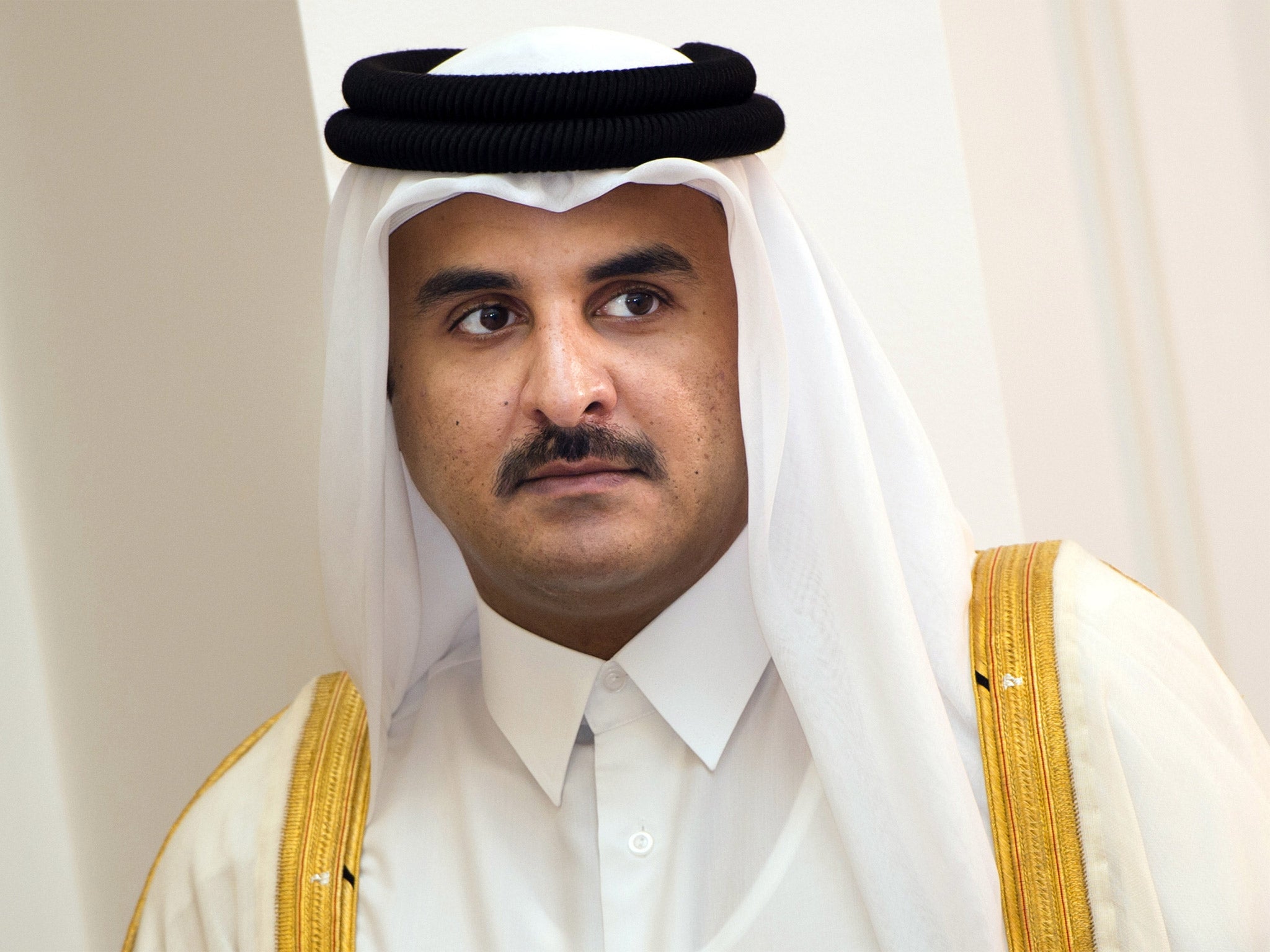Saudi Arabia closes local al Jazeera office over Qatar’s backing for the Muslim Brotherhood
The Saudis, UAE and Bahrain are in confrontation with Qatar over it's support for jihadi rebels in Syria and its satellite television station’s willingness to provide a platform for critics of the Gulf monarchs and their allies

Your support helps us to tell the story
From reproductive rights to climate change to Big Tech, The Independent is on the ground when the story is developing. Whether it's investigating the financials of Elon Musk's pro-Trump PAC or producing our latest documentary, 'The A Word', which shines a light on the American women fighting for reproductive rights, we know how important it is to parse out the facts from the messaging.
At such a critical moment in US history, we need reporters on the ground. Your donation allows us to keep sending journalists to speak to both sides of the story.
The Independent is trusted by Americans across the entire political spectrum. And unlike many other quality news outlets, we choose not to lock Americans out of our reporting and analysis with paywalls. We believe quality journalism should be available to everyone, paid for by those who can afford it.
Your support makes all the difference.Saudi Arabia intends to close the local office of the Qatari-owned al Jazeera satellite television station in the latest episode in the escalating conflict in which the Saudis, United Arab Emirates and Bahrain are in confrontation with Qatar, say local media.
At the heart of the dispute is Qatar’s backing for the Muslim Brotherhood, which Saudi Arabia banned last Friday, and Qatari opposition to the regime of Field Marshall Abdel Fattah al-Sisi in Egypt that came to power in a coup last summer.
Riyadh and Doha now differ on almost every aspect of foreign policy, notably Qatar’s support for jihadi rebels in Syria and al Jazeera’s willingness to provide a television platform for critics of the Gulf monarchs and their allies.
So far Saudi Arabia has not had any success in forcing Qatar to the same political line as the more conservative Gulf states. Gestures such as a withdrawal of the Saudi, Bahraini, UAE and Egyptian ambassadors from Qatar is likely to be ineffectual. Doha remains the base for the Muslim Brotherhood and its spiritual guide, Sheikh Youssef al-Qaradawi, who strongly criticised the UAE authorities after they had jailed dozens of Muslim Brotherhood members.
Qatar’s ruler, Sheikh Tamim al-Thani, is unlikely to bow to Saudi demands that would limit his country’s independence. But the Saudis have implied that they could step up the pressure on him by economic sanctions such as restrictions on use of air space and land borders.
It is unclear how far Saudi Arabia is reordering its foreign and domestic policy by opposing radical Islamic movements and labelling almost all of them as “terrorists”. Under a new decree, any Saudi who fights in a foreign conflict could face 20-30 years in prison as will those supporting them. There are believed to be between 1,000 and 2,000 Saudis fighting in Syria and it is unlikely they will all be detained when they return home.
The Saudi state is also engaged in a project to support a new offensive by rebels in southern Syria and is reported to be offering the rebel fighters anti-aircraft missiles.
Saudi policy remains ambivalent, despite the recent rush of repressive legislation at home and a greater emphasis on diplomacy over military action in dealing with Syria. Saudi preachers on satellite TV continue to call for anti-Shia jihad in Syria.
Join our commenting forum
Join thought-provoking conversations, follow other Independent readers and see their replies
Comments